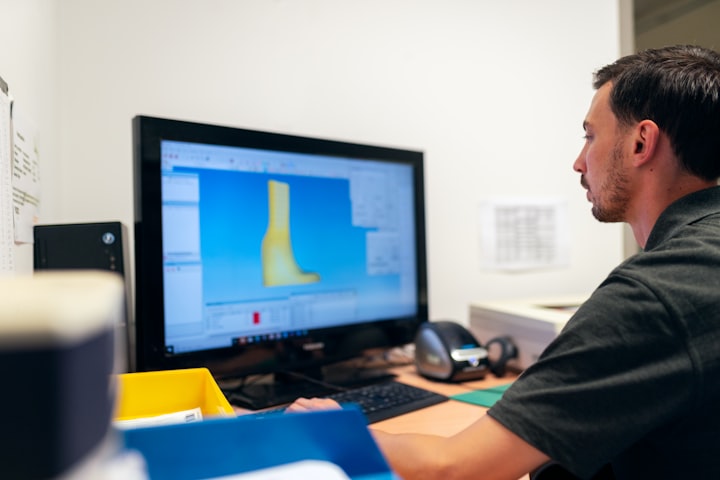Are you a Software Engineer living outside the US
US Software Developers jobs. Work remotely. No visa needed. Full time jobs. High salary

In this post, I’ll write about why I don’t feel comfortable in my home country of Australia as an Australian engineer.
I spent three years working as a software engineer in India (a place which is known for its love for startup culture and has one of the best start-ups per capita), but I never felt like my job was done there. And when it came time to look for work back home, I was pleasantly surprised by how much I didn’t know about technology. So how did being stuck out on the other side of the world make me think I wasn’t cut out enough? Let’s find out!
I have always been fascinated by what makes people tick at the start of their careers. But not everyone needs advice on starting your first project or understanding the nuances of management, especially when trying a new industry. There are many times where the advice I would have received from someone else hasn’t made any tangible difference to my situation. This is something that I didn’t realise as a beginner programmer in my previous workplace. When I got into tech, I thought we were all so “brave new engineers” who had just started learning everything they could about coding. That isn’t the case — most people have a lot of experience with programming as the basic skill they know how to do. But once they had a crash course with it, it became second nature that they knew it all. As beginners programmers, my goal was no longer just to get some good ideas — my main focus was to help others figure out their problems, fix them, then iterate them. It turned into helping everyone else. If the idea you come up with is really bad, the sooner you learn to recognize that fact sooner, the better off you will be when you finally get around to making an actual product.
This also comes to light with my personal experiences. Back before Covid, I spent my summer internship at a startup. The process for getting accepted to these big teams used to be brutal, but I never actually gave up hope. After 2 months, I ended my 7 month long programme because things weren’t going too well, and luckily, the company kept giving me opportunities to prove myself. Being one of the few interns to get hired, I spent almost half of my time working on building awesome products for a brand new organisation. Some people even told me I couldn’t join them — because I only started looking after 10 companies per year, and I didn’t quite fit enough on them (even though I still loved each one).
There is nothing wrong with this; I was lucky enough to have had that opportunity to build an amazing product team that is now responsible for millions in revenues (which makes things worse if you work in tech that doesn’t pay for salaries). However, if you’re still young doing a relatively short period then I would recommend taking more than 4 positions to see if things go down as planned (even if you’re fortunate enough to have already). Take a risk and start a business that can sustain you for the rest of your life. Don’t take over to the next thing and become complacent when things aren’t going great. Learn to say ‘no’ when working things out. Even in tech, you should build relationships with people who work similar to you, so that you don’t feel left out because someone isn’t reaching the same ambitions as you. Trust me when I say I really admire a lot of people I worked with while I was working abroad, and I was hoping to gain access to their networks to share valuable knowledge with their colleagues. By spending weeks or even the entire semester building a network within your own community, you’ll grow slowly and eventually learn valuable skills that can help you move to wherever it is appropriate to help other developers. It may sound obvious, but you need to invest time in your own development. Build connections, develop friendships, and develop trust throughout your journey by investing time to create relationships with people in the right places. Get out there and be active — social media has made networking super simple, and with platforms like LinkedIn there are literally thousands of groups for every interest, not to mention hundreds of smaller organizations. Go on those hikes you always talked about, but haven’t given them another thought for a long time, even if you know exactly where they are. Be open to new experiences too. While I had the luxury to study engineering abroad, there are tons of other ways to live in Australia without fully abandoning the lifestyle you grew accustomed to for the past nine months. The internet also offers plenty of fantastic resources for finding out different languages, food, or places to stay. Just remember to check local government websites first — they’re always changing, and there is often info available online about the areas you can visit or even places nearby. Start small. One of the reasons I wanted to switch overseas was because I want to explore different cultures and discover new ones too. Not everyone goes through this stage of curiosity. Take advantage the free time you have as a student in Australia. Do not spend all of your days sitting at your computer, and start to use the free time of yours as a member of your community. Use your weekends to help out at your church or friends’ group, try something new with your family (I spent 5 days travelling across Europe!), read books, watch movies, play video games, listen to music, or whatever motivates you. Make sure to find ways to connect with your classmates! My favourite community to support has been called the Slack Channel, so signup if you want to join it. I personally joined this channel back when you had to fill out a registration form to have an account. Having friends on your team can often make all the difference, especially that it’s not easy to maintain your friendships as regularly as you would with coworkers. Learning how to manage your time wisely is very important for anyone interested in success (which is why mastering it is such a massive feat). Put a stop sign into your email address book to keep track of what you are going to give yourself to invest in.
The easiest way to put down this message is “it’s okay not to know everything”. Personally, I feel like I have it pretty easy with what I know but with what I do not yet know about.
About the Creator
Rubina Akther
Online Earn Affiliate Marketing...






Comments
There are no comments for this story
Be the first to respond and start the conversation.